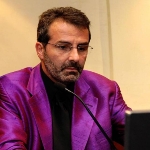Education
In 1975, he studied astronomy at the Summer Science Program.

In 1975, he studied astronomy at the Summer Science Program.
As a teacher, he has taught macroeconomics, microeconomics, statistics, and principles of economics. He even spent one summer long ago as a sailing instructor on Long Beach Island.
Professor Mankiw is a prolific writer and a regular participant in academic and policy debates. His research includes work on price adjustment, consumer behavior, financial markets, monetary and fiscal policy, and economic growth. His published articles have appeared in academic journals, such as the American Economic Review, Journal of Political Economy, and Quarterly Journal of Economics, and in more widely accessible forums, such as The New York Times, The Washington Post, The Wall Street Journal, and Fortune.
He has written two popular textbooks—the intermediate-level textbook Macroeconomics(Worth Publishers) and the introductory textbook Principles of Economics (South-Western/Thomson). Principles of Economics has sold over a million copies and has been translated into twenty languages.
In addition to his teaching, research, and writing, Professor Mankiw has been a research associate of the National Bureau of Economic Research, an adviser to the Federal Reserve Bank of Boston and the Congressional Budget Office, and a member of the ETS test development committee for the advanced placement exam in economics. From 2003 to 2005 he served as Chairman of the President's Council of Economic Advisers.
One of Mankiw’s continuing research interests is the theory of short-run price adjustment. This work often goes by the label ‘new Keynesian’, although it builds on the views of monetarists such as Milton Friedman as much as on the views of Keynes. Much of his work highlights the behavior of monopolistically competitive firms that must incur ‘menu costs’ to change prices. His 1985 paper on this topic examined the incentives that firms face when deciding whether to adjust prices and the divergence between the private and social benefits of price adjustment. Later papers emphasized the difficulty of explaining the inertial behavior of inflation. Mankiw’s 2002 paper with Reis proposed that inflation inertia could be explained by the slow dissemination of information among price setters. A second continuing research interest is the determinants of consumption. A paper in 1982 extended Hall’s rational-expectations framework to durable goods. His 1989 paper with Campbell found that predictable changes in income are associated with predictable changes in consumption and concluded that current income has a stronger influence on consumer spending than can be explained by the permanent income hypothesis. Mankiw’s joint work with Zeldes detected systematic differences between consumers who hold equities and those who don’t, suggesting that these differences might help resolve the equity premium puzzle. A third continuing research interest is the theory and empirics of long-run growth. Mankiw’s 1989 paper with Abel, Summers, and Zeckhauser derived sufficient conditions for evaluating the efficiency of capital accumulation in economies with uncertainty. Mankiw’s 1992 paper with Romer and Weil examined international data on living standards and concluded that these data were consistent with a Solow growth model augmented to include a role for human capital.
Mankiw has become an influential figure in the Blogosphere and online journalism since launching his blog. The blog, originally designed to assist his Ec10 students, has gained a readership that extends far beyond students of introductory economics. In particular, he has used it as a platform to advocate the implementation of pigovian taxes such as a revenue-neutral carbon tax; to this end Mankiw founded the informal Pigou Club
Hall's Consumption Hypothesis and Durable Goods, Journal of Monetary Economics 10, November 1982, 417-426
Intertemporal Substitution in Macroeconomics, with Julio Rotemberg and Lawrence Summers, Quarterly Journal of Economics 100, February 1985, 225-251
Imperfect Information and Aggregate Supply, with Ricardo Reis, Handbook of Monetary Economics, 2011
Spreading the Wealth Around: Reflections Inspired by Joe the Plumber, Eastern Economic Journal 36, 2010, 285-298
The Optimal Taxation of Height: A Case Study in Utilitarian Income Redistribution, with Matthew Weinzierl, American Economic Journal: Economic Policy, 2(1), February 2010, 155–76
Optimal Taxation in Theory and Practice, with Matthew Weinzierl and Danny Yagan, Journal of Economic Perspectives, 23 (4), Fall 2009, 147-74
Smart Taxes: An Open Invitation to Join the Pigou Club, Eastern Economic Journal 35, 2009, 12-23
Intergenerational Risk Sharing in the Spirit of Arrow, Debreu, and Rawls, with Applications to Social Security Design, with Laurence Ball, Journal of Political Economy, 115 (4), August 2007, 523-547
Sticky Information in General Equilibrium, Journal of the European Economic Association, 5 (2-3) Apr-May 2007, 603-613
The Macroeconomist as Scientist and Engineer, Journal of Economic Perspectives, 20 (4), Fall 2006, 29-46
The Politics and Economics of Offshore Outsourcing, with Phillip L. Swagel, Journal of Monetary Economics, 53 (5), July 2006, 1027-1056
Pervasive Stickiness, with Ricardo Reis, American Economic Review, May 2006, 96 (2), 164-169
Compared to Democrats, the Republicans tend to favor smaller government, lower taxes, and greater reliance on free markets. On many social issues, he find himself agreeing with the Democrats more than the Republicans, and he know that the Republicans are far from perfect on economic issues. But as a classical liberal in the spirit of Milton Friedman, he find himself rooting for the Republican team more often. The recent debate over the minimum wage is a case in point.
Professor Mankiw lives in Wellesley, Massachusetts, with his wife, three children, and their border terrier Tobin.


Economist
